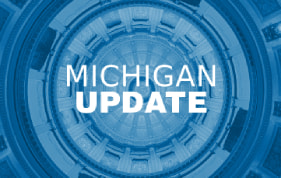Agreement about the severity of the nation’s mental health and substance use disorder crises is rising above the partisan politics in Congress. In fact, these are among a handful of issues driving work on bipartisan legislation across all the key House and Senate committees with jurisdiction over behavioral health programs and policies this year.
On May 18, the U.S. House of Representatives Energy and Commerce Committee unanimously approved the “Restoring Hope for Mental Health and Well-Being Act of 2022” (H.R. 7666). This legislation incorporates a collection of bipartisan bills to update and reauthorize over 30 Substance Abuse and Mental Health Services Administration (SAMHSA) and Health Resources and Services Administration (HRSA) programs addressing the mental health and substance use disorder (SUD) crisis. The bill also advances initiatives to strengthen the 9-8-8 National Suicide Prevention Lifeline implementation efforts, invest in the crisis response continuum of care, and support strategic opioid crisis response plans among numerous other policies. Energy and Commerce is one of several House committees planning to advance behavioral health bills this year.
U.S. Senate committee leaders have been similarly engaged in developing bipartisan proposals to address mental health and substance use disorders. Senate Health, Education, Labor and Pensions (HELP) and Finance committee leaders are expected to reveal their proposals as soon as this summer. The Finance Committee’s proposal will focus on Medicare, Medicaid, and Children’s Health Insurance Program (CHIP) policies and could reflect findings from the committee’s report, “Mental Health Care in the United States: The Case for Federal Action.” Similarly, HELP members Sens. Chris Murphy (D-CT) and Bill Cassidy (R-LA) introduced the Mental Health Reform Reauthorization Act to extend several expiring mental health programs, which could be incorporated in that Committee’s comprehensive proposal. Across committees, there has been an interest in strengthening parity, supporting integration of primary and behavioral health care, increasing access to youth mental health screenings, scheduling fentanyl analogues, and easing requirements for prescribing Medication Assisted Treatment.
What To Expect
Congressional leaders have consistently expressed their desire to advance bipartisan legislation to address the urgent needs and gaps in the mental health and SUD care delivery systems, as well as support education and research. While these are key areas to watch, the diminishing number of legislative days on the congressional calendar and climate surrounding November’s mid-term elections create uncertainty for the timing and scope of Congress’ work. It remains to be seen whether a package of health care proposals, such as reauthorization of the U.S. Food and Drug Administration’s user fee programs, the Cures 2.0 legislation to advance biomedical research, mental health and substance use disorder legislation, and the PREVENT Act could be sent to President Biden’s desk before the end of September.
HMA companies are supporting clients impacted by the policy changes being discussed and the program funding addressed in these legislative proposals. Understanding the landscape for federal change allows state and local governments and stakeholders to plan for and shape these opportunities. For more information, please contact Andrea Maresca, Principal, Federal Policy, HMA; Matt Gallivan, Director, Leavitt Partners; and Laura Pence, Director, Leavitt Partners.



